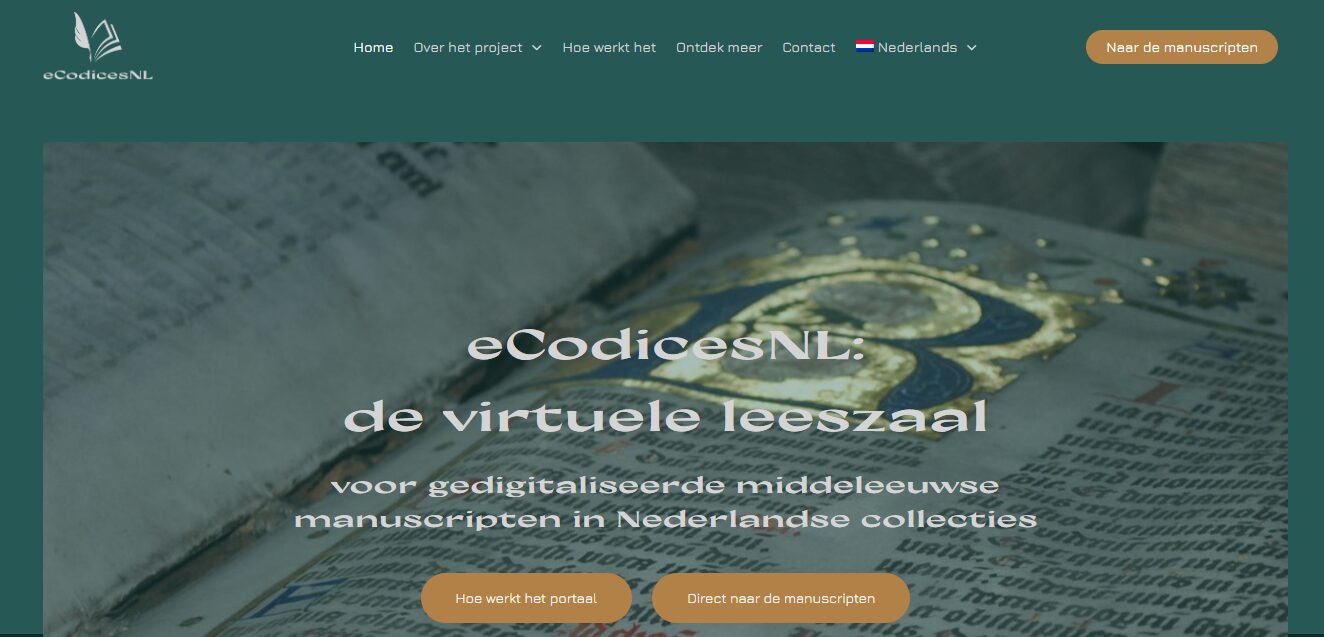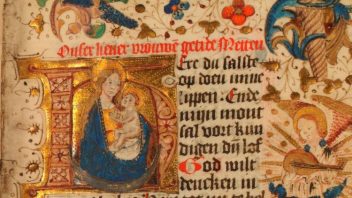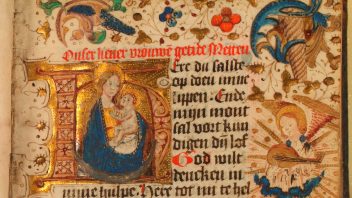Grant awarded for new phase eCodicesNL
The Huygens Institute in Amsterdam and Radboud University in Nijmegen will expand and improve eCodicesNL, the national portal for medieval books in Dutch collections. This has been made possible thanks to a grant from the Pica Foundation. This has been made possible thanks to a grant from the Pica Foundation.
Recently, the Huygens Institute together with Radboud University (Radboud Erfgoed) secured a grant for a new phase of the national portal for medieval books, eCodicesNL. The Pica Foundation makes this grant available to projects to better connect digital heritage. Thanks to this grant, medieval heritage can be made more accessible to an audience of specialists and non-specialists alike.
Mariken Teeuwen, head of the Digital Editions research group, wants to improve two important aspects of eCodicesNL: ‘We make sure the portal can process more descriptive datasets. This is a challenge because they differ in structure and code for each collection. We are also creating a Linked Data set and improving the systematic use of terms. If we can bring the descriptive data from different heritage institutions more in line, we can connect the collections even better.’
For the new project, the eCodicesNL team (Mariken Teeuwen, Irene van Renswoude and Rob Zeeman) will collaborate with Hilde van Wanroij and Ruud van den Heuvel, collection specialist and metadata specialist, respectively, from the Collection & Publication Services (Radboud Erfgoed) department of Radboud University.
Nice test case
Irene van Renswoude, head of the Knowledge and Art Practices research group, is looking forward to working with Radboud University’s special collections: ‘Digitisation is in full swing there, and what’s more, they have beautiful manuscripts and a particularly rich set of metadata. That makes for a nice test case in our project. Moreover, we expect to learn a lot from the specialists there.’
Hilde van Wanroij, collections specialist Bijzondere Collecties: ‘The cooperation with the Huygens Institute enables us to further develop and share our expertise in collection management and digital publishing. In recent years, we have invested a lot of time and energy in describing and making available our manuscript collection. This collaboration is a wonderful next step in making our collection even more accessible to both researchers and the general public. Moreover, we are happy to contribute to the development of a process to connect other collection-holding institutions to the portal.’
Working with medieval, manuscript books is not easy, even when they are digitised and offered on a collection-holding institution’s website. Descriptions are full of complicated terminology and search interfaces are often geared towards a well-versed, specialised user. And each institution uses its own set of terms, making searching across different collections difficult.
‘Digitising books is not enough’
Johan Oosterman, director Radboud Erfgoed: ‘Digitising books is not enough: they must be able to be queried by researchers in all sorts of ways and made visible in a beautiful way to the public curious about those medieval treasures. Cooperation with the Huygens Institute is very valuable for us.’

eCodices website
eCodicesNL provides access to as many digitised medieval books, with their descriptive datasets, from multiple institutions, which you can already browse, view and read now. But from March 2026, thanks to Linked Data, uniform terms and an improved search interface, a visitor will be able to search the digitised manuscripts of the various special collections even more easily.
Mariken Teeuwen: ‘In the new project, we are building a future-proof portal. The ambition is that all institutions that own one or more medieval books can join.’
The project will start on 1 September 2024 and will run for 18 months.




